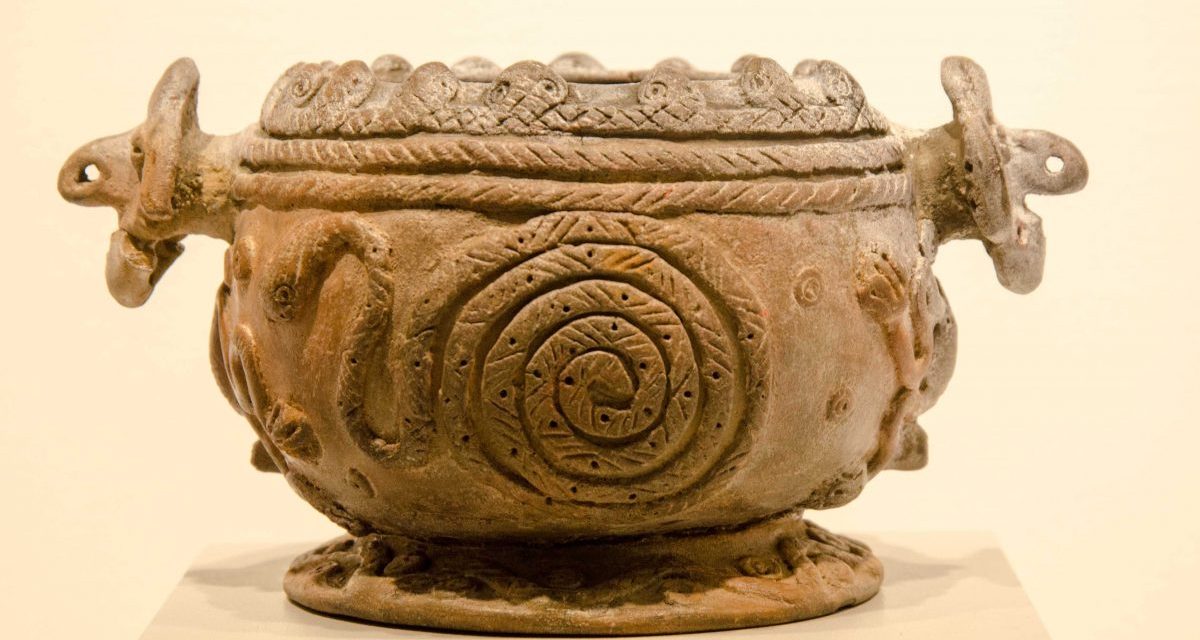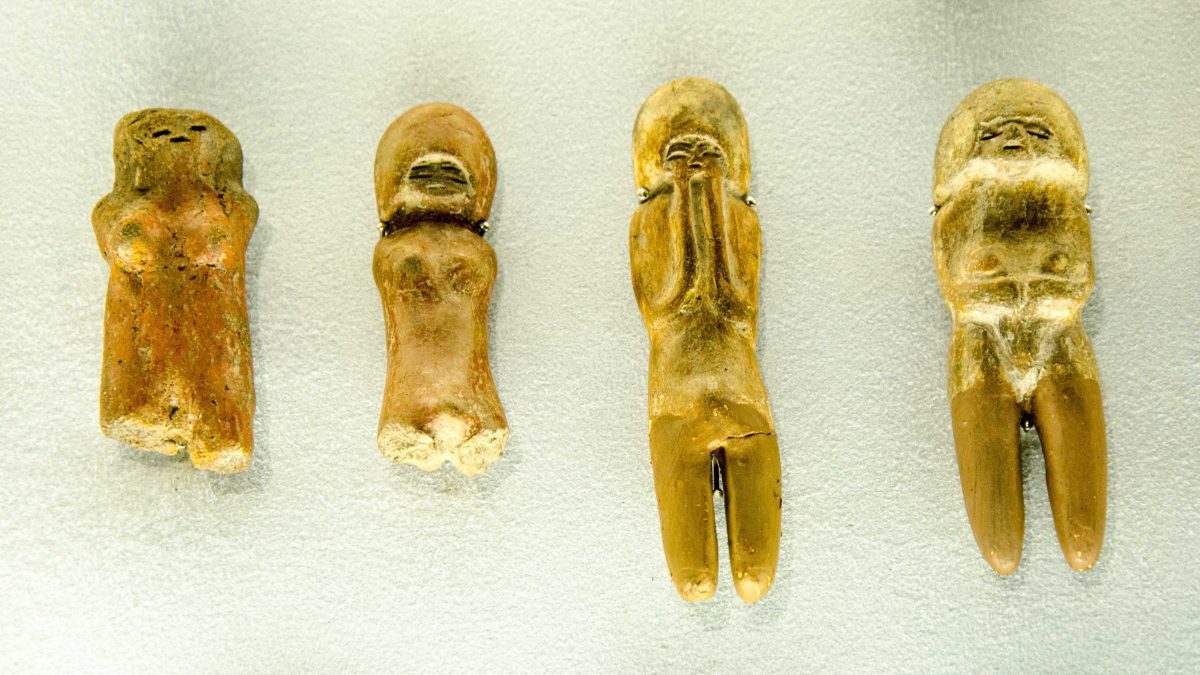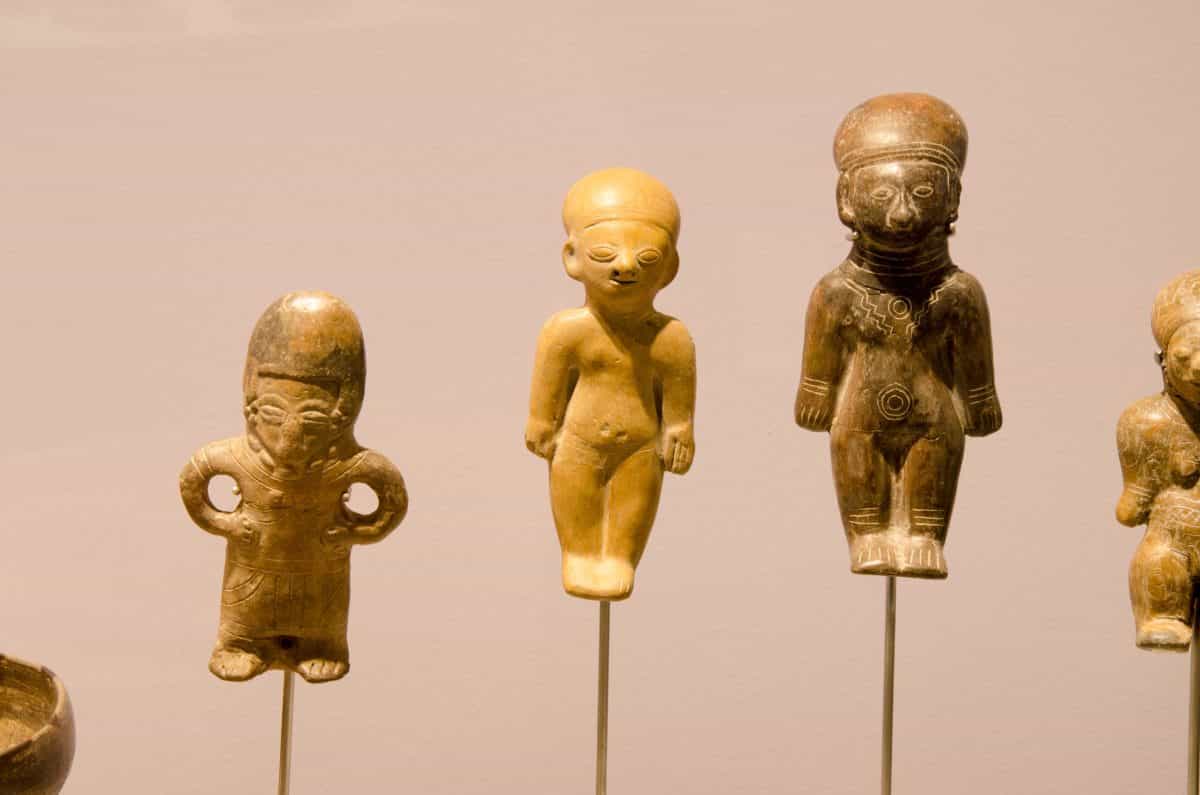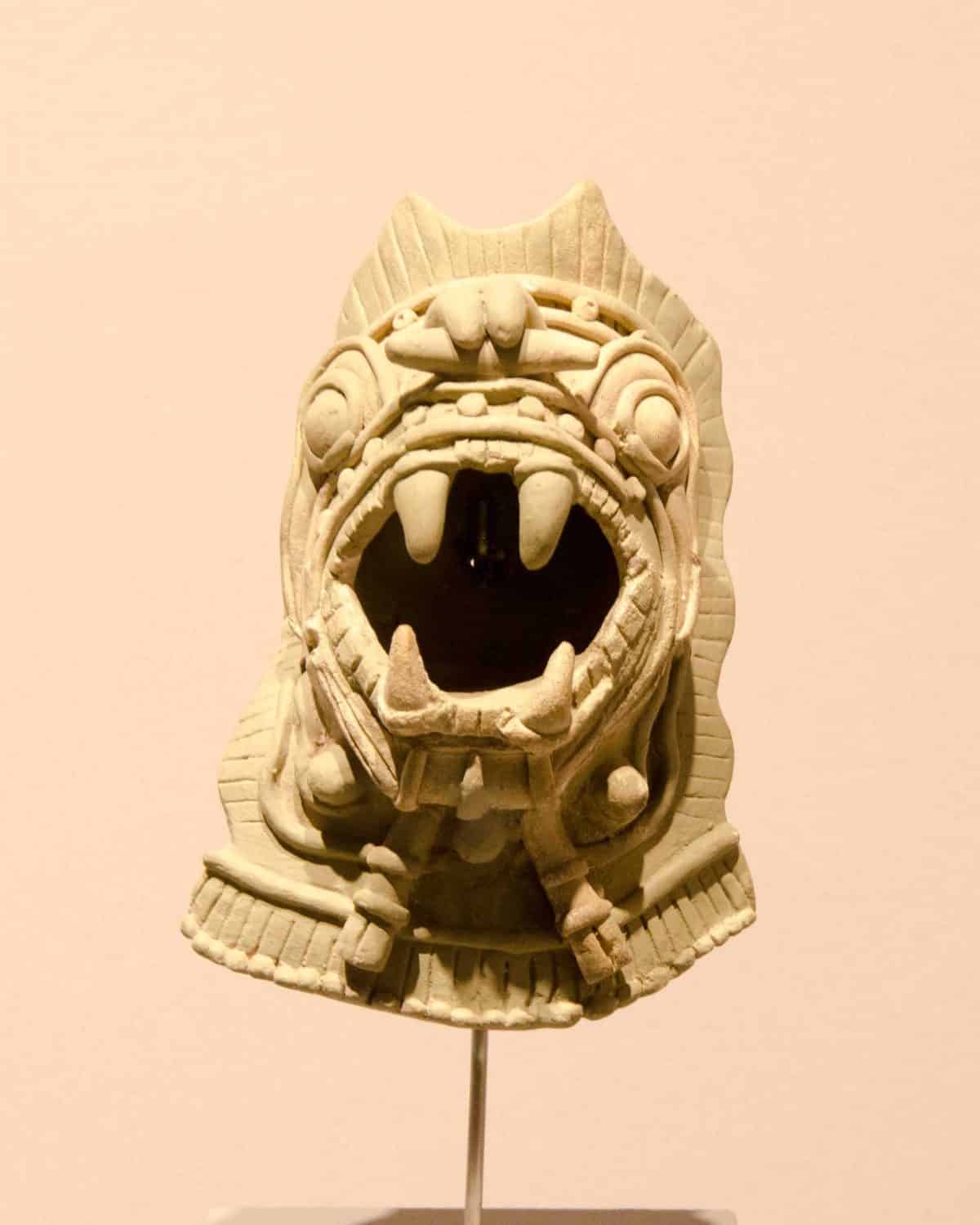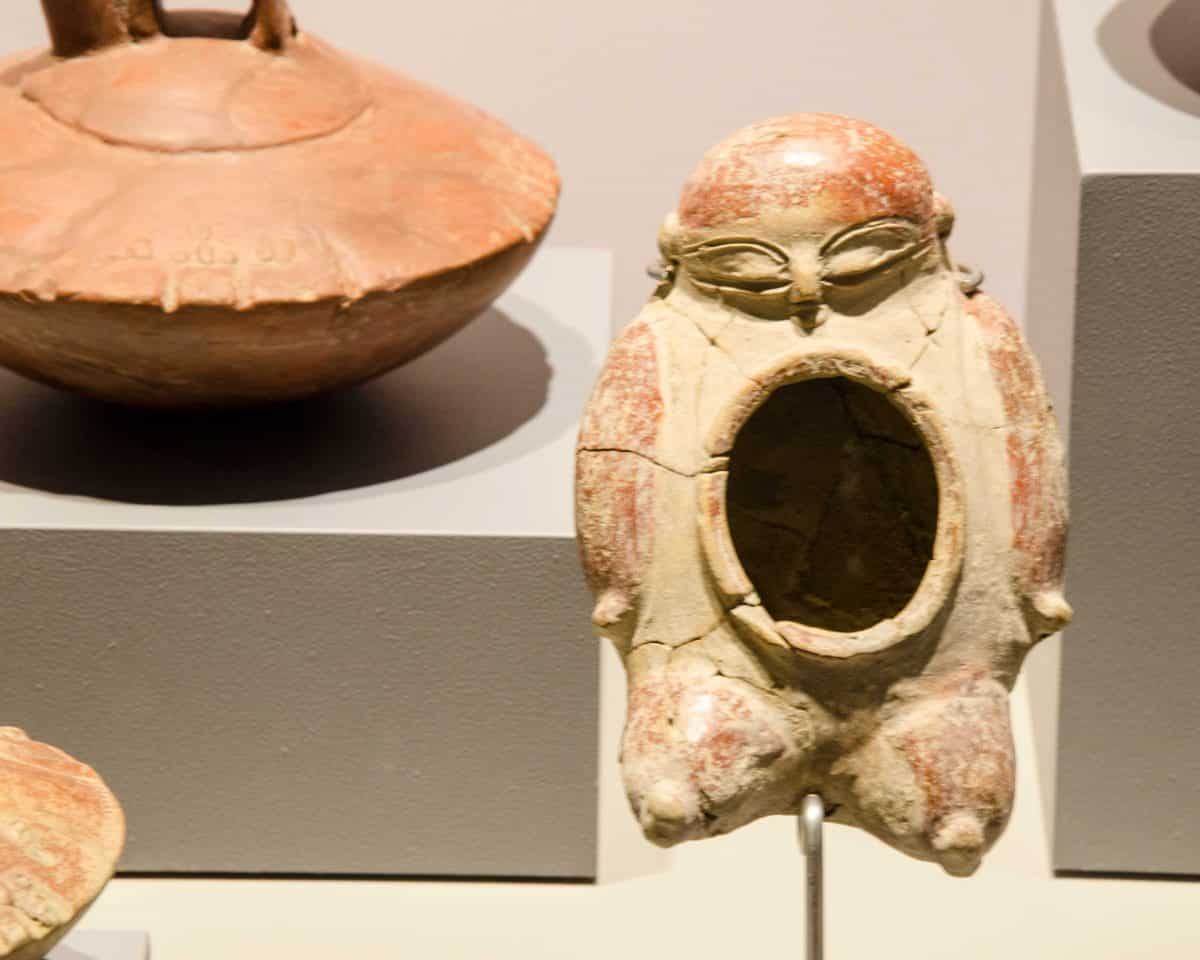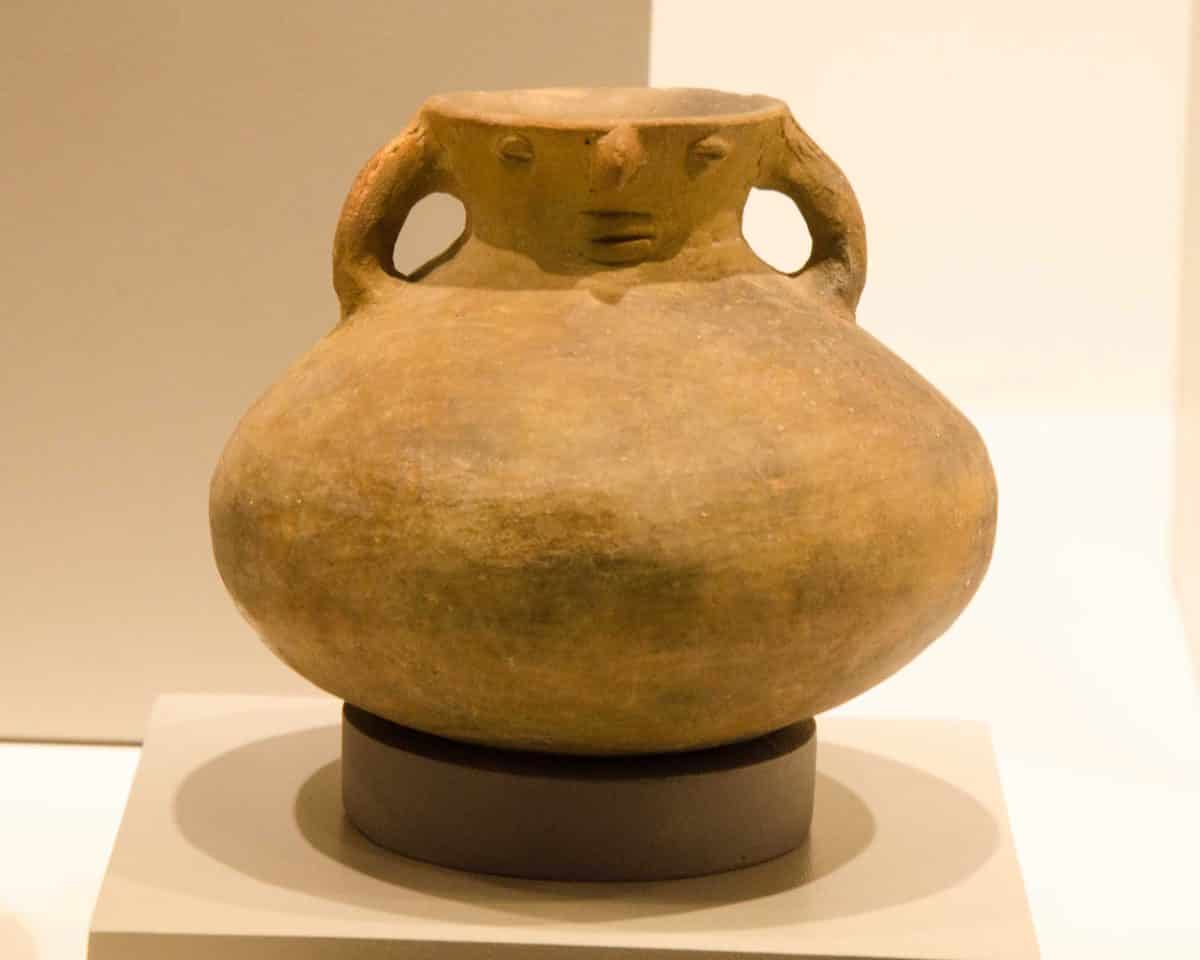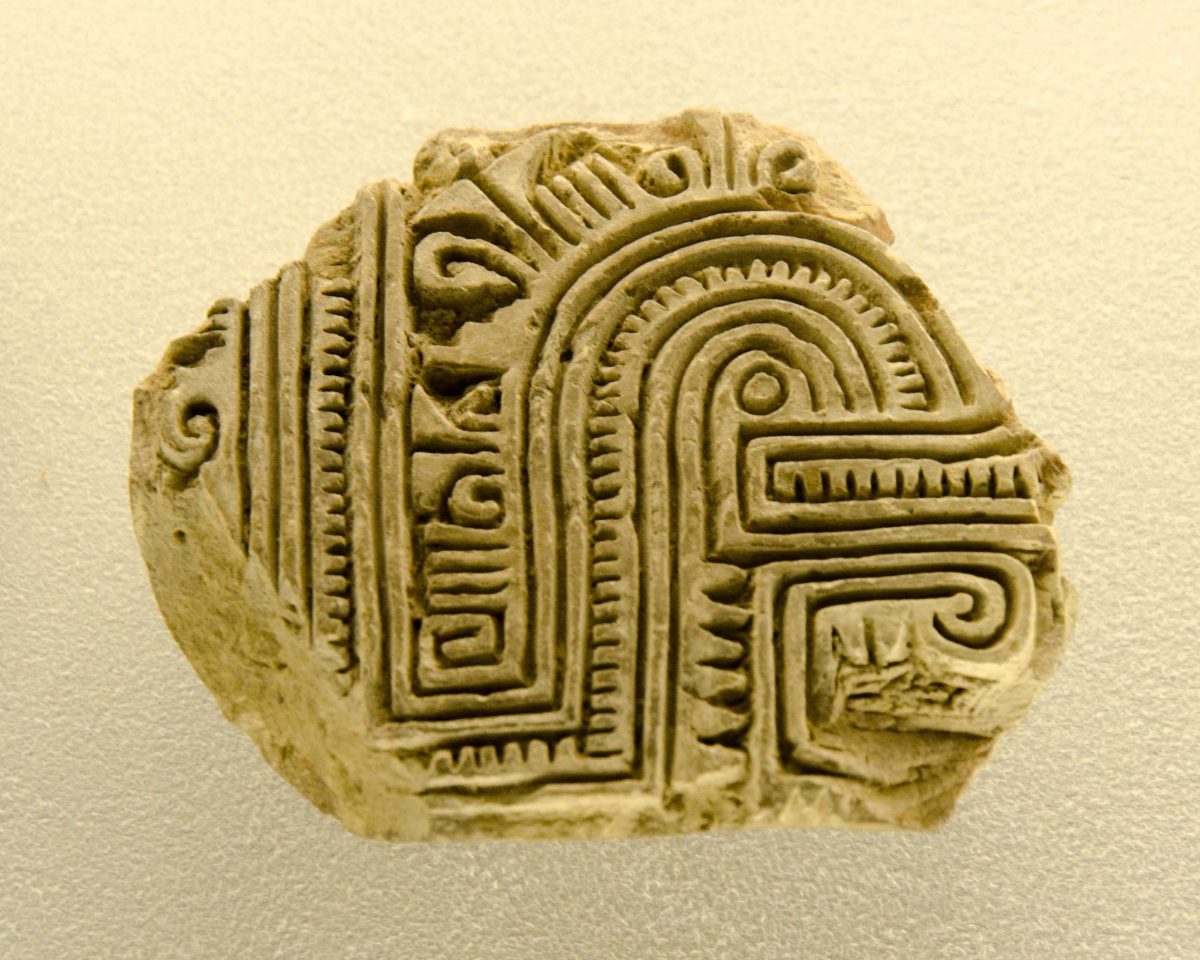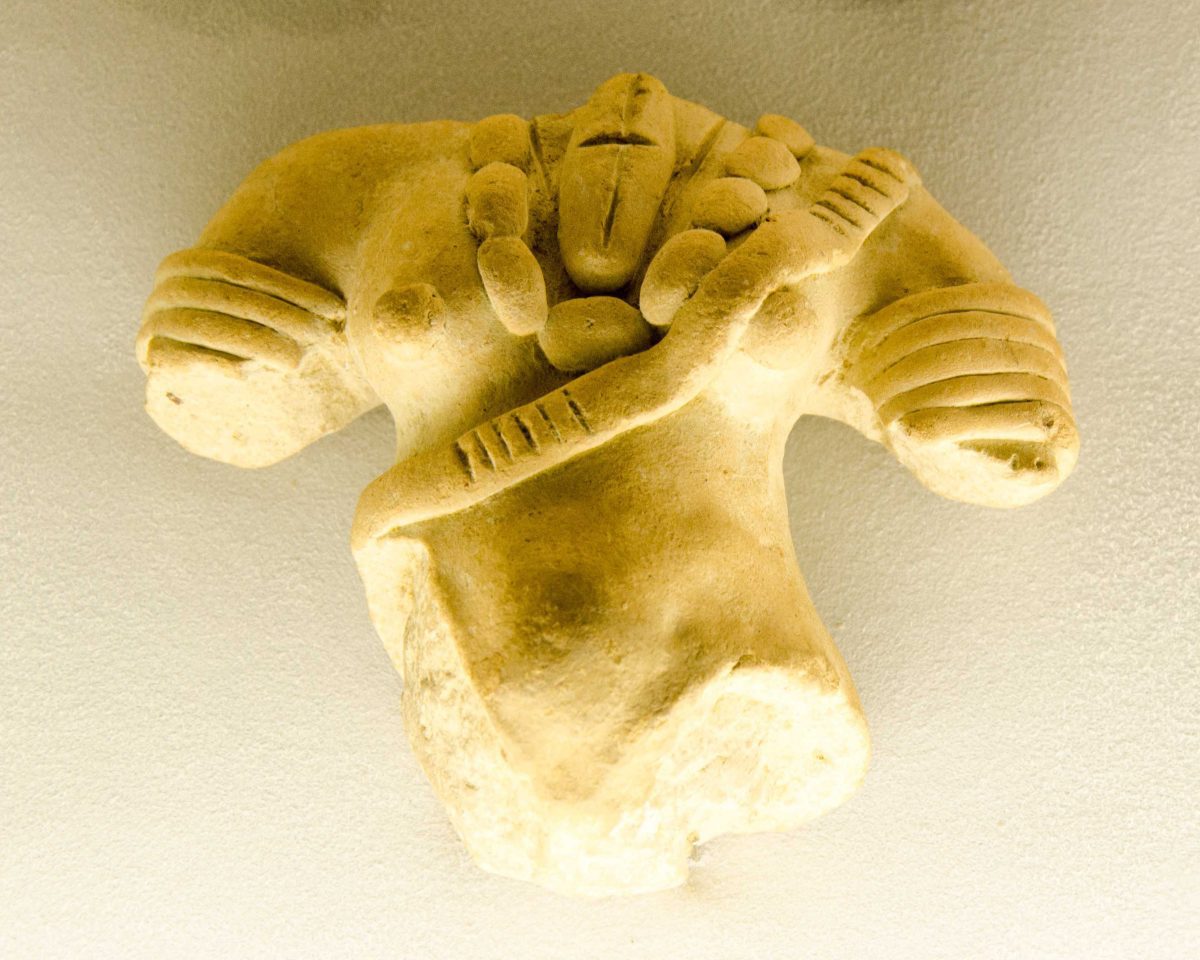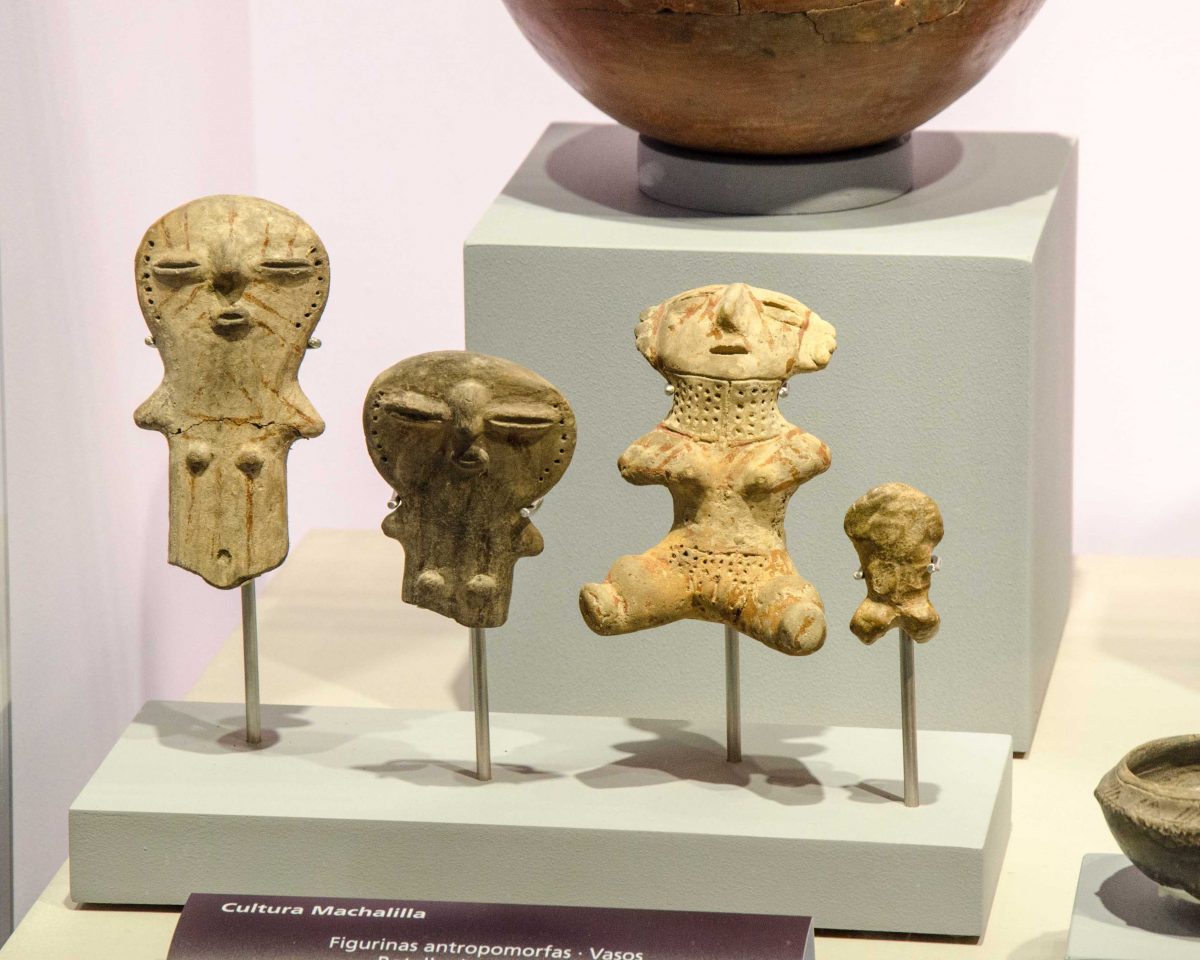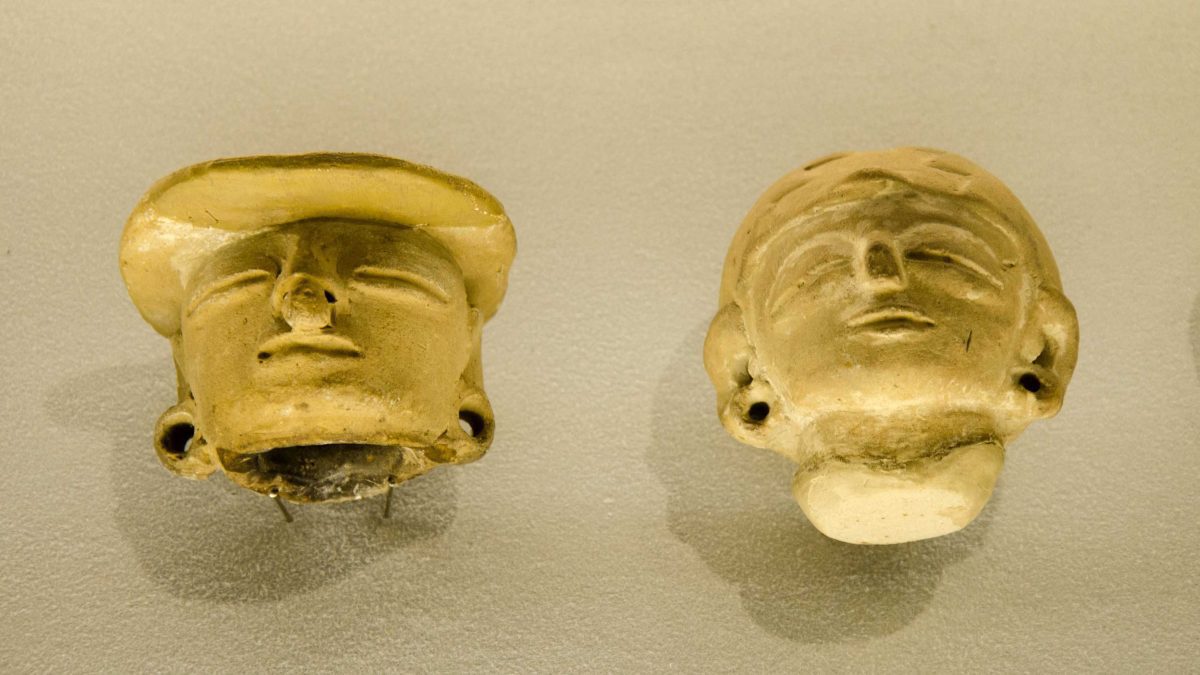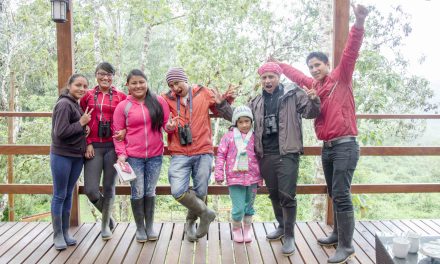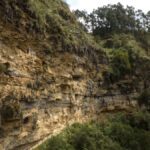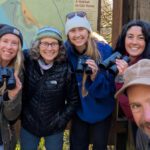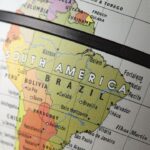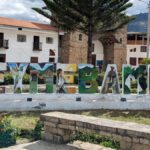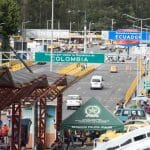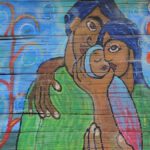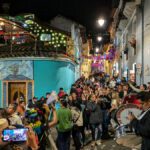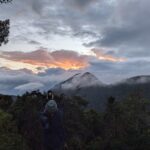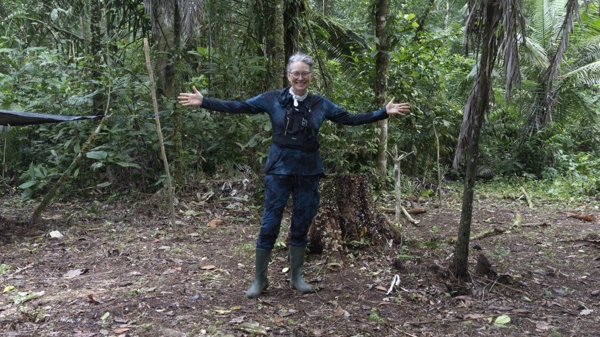First published on March 30, 2018 • Last updated on December 4, 2025
This page may contain affiliate links; if you purchase through them,
we may receive a small commission at no extra cost to you.
The Catholic University in Quito, better known as PUCE (Pontificia Universidad Católica del Ecuador), is home to two museums: the Weilbauer and the Jacinto Jijón y Caamaño. Both are located on the main campus inside the Cultural Center. Each museum is worthy of a visit and both can be explored in a couple of hours. However, the Weilbauer Museum will capture the hearts of archeology aficionados.
The Weilbauer Museum
Hilde and Eugen Wielbauer moved to Ecuador in 1939 from pre-war Germany. They settled in the Oriente near Archidona and discovered a love for ancient, pre-Columbian artifacts. Upon their death, they left an impressive collection of archeology treasures to PUCE.
It wasn’t until 1988 that the museum officially opened under the guidance and design of Father Pedro Porras G.
Today, a recently renovated set of exhibits places an impressive collection of obsidian shards and pre-historic ceramics in context. Written descriptions explain ancient cultures from with the first recorded human presence in Ecuador to the arrival of the Inca.
Moreover, this small museum is perfect for families looking to introduce children to the ancient history of Ecuador. This free museum is easy to navigate and its compact size makes it difficult to feel overwhelmed with information.
In fact, one room seems aimed at inquisitive visitors who learn by touch, the Sala Táctil. This room contains several reproductions of iconic pottery. The ceramics are displayed on turn tables that allow for hands-on exploration of ancient designs.
Inspiration for Other Archeology Exploration
A visit to see these curious pieces at the Weilbauer Museum may compel you to search out other archeology treasures. In Quito, I highly recommend a visit to the Casa Alabado, the small Museo de Sitio at La Florida, and a walk in the outdoor museum at Rumipamba.
Easy day trips outside of Quito include:
- The Incan-Caranqui ruins at Rumicucho
- The Yumbo star-gazing pools in Tulipe
- The ancient pyramids at Cochasquí
For petroglyphs related to the Yumbo ruins, don’t miss the hike beyond the Cascada Gallo de la Peña in Pacto.
Our favorites that require planning an overnight trip include these Pacific Coast destinations:
For those of you planning a trip to Cuenca, please visit the wonderful Incan-Cañari ruins at Ingapirca and their lesser-known sister destination at Cojitambo.
Information For Your Visit to the Weilbauer
When you arrive to the campus, a guard will ask you to leave identification at the entrance. Although I have never had a problem, I recommend leaving a copy of a student id or a driver’s license rather than your passport. Better yet, photocopy a legal form of identification and have it laminated so that it looks official. I have often used a laminated copy without problems throughout the city.
Opening Hours and Directions
The museum is open during school hours: Monday through Friday from 9:00 am until 4:30 pm.
To arrange for an English-speaking guide, please call or email before your visit: 0299-1681 or 0299-1700 ext.2246; museoweilbauer@puce.edu.ec
Av. 12 de Octubre 1076 y Roca.
Edificio del Centro Cultural PUCE, 2nd floor
Quito, Ecuador
Catholic University
Information For Your Trip
Wear comfortable walking shoes and use your city street sense while touring the neighborhood around PUCE.
- Direction by Car, use WAZE and PUCE, Quito, Ecuador. However, parking is difficult in this neighborhood. We recommend using Easy Taxi.
- Direction by Public Transportation for buses around Quito, use the Google Map link and click on get directions. Use the public transportation option to find the best from your current location.

